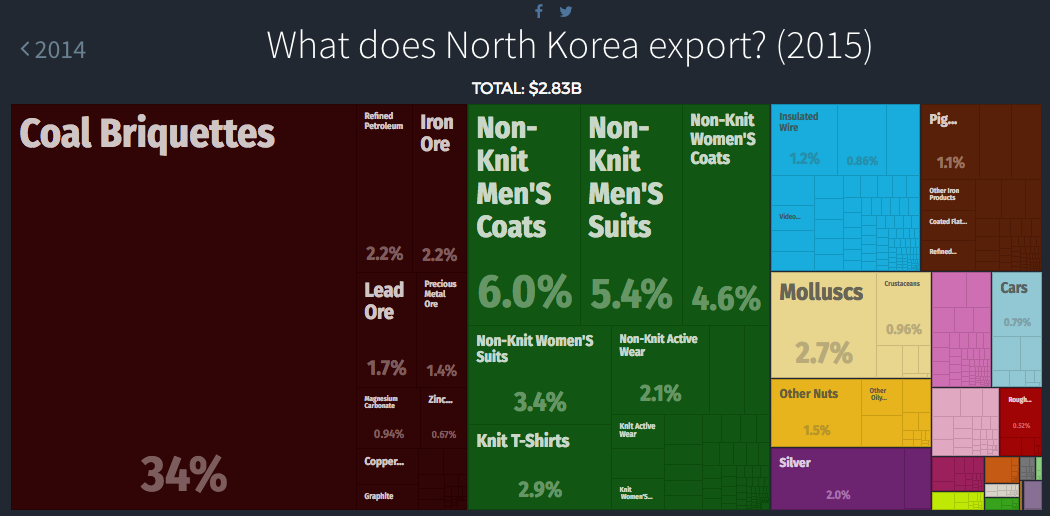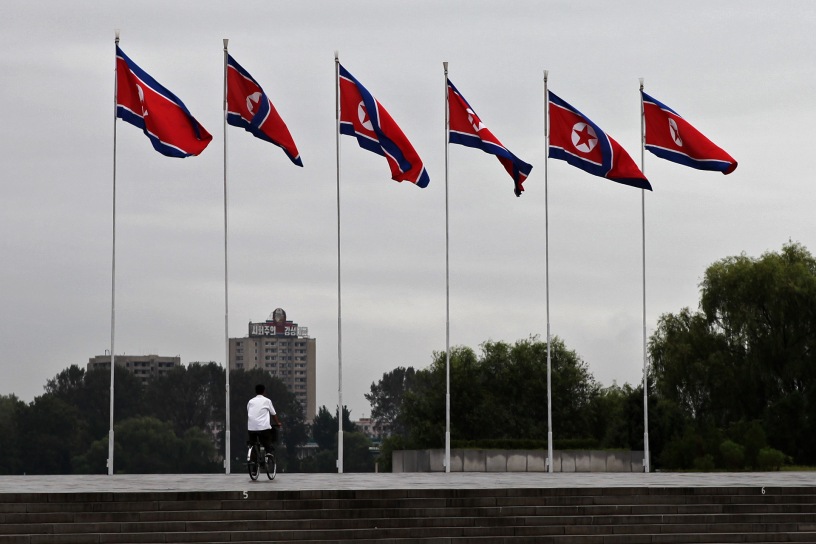From Reuters:
The U.N. Security Council unanimously imposed new sanctions on North Korea on Saturday aimed at pressuring Pyongyang to end its nuclear program. The sanctions could slash North Korea's $3 billion annual export revenue by a third.
Shockingly, the UN has banned exports of "North Korean coal, iron, iron ore, lead, lead ore and seafood." That's a huge chunk of North Korea's current known exports. More specifically, it's the coal ban that hurts the most. Coal briquettes, after all, accounted for 34% of all exports in 2015.

Coal is one of the few things that North Korea still produces in abundance, and 98% of it goes to China.
Up until this point, China has refused to cut this vital supply line to Pyongyang. But the most recent vote was unanimous: not even Russia dared a veto.
It's not clear exactly why Beijing went along this time. Was it displeasure that Kim Jong Un refused to follow China's directives? Or was it worry that Donald Trump is just erratic enough to start a war over the North Korean nuclear program, should Pyongyang keep testing its ICBMs?
Perhaps China's Xi Jinping, having met both Trump and Kim, has concluded that he is watching two bad drivers play chicken, and can no longer rely on America's restraint and North Korea's sly to avoid a second, surely disastrous Korean War.
Whether or not Trump is playing the madman or actually is one, this strangling of North Korea's vital coal juglar is worth considering from the perspective of North Korea's own elites. Having been protected first by the Soviets and then the Chinese, North Korea has enjoyed an odd immunity as one of the world's oldest geopolitical stalemates. It has conducted terrorism and conventional attacks on the United States and its allies, yet has never suffered retribution from the superpower beyond sanctions. That's produced a different kind of state psychology in Pyongyang, one that predicates itself on the notion that few decisions by the Kim family have any relevant consequence.
For those closest to the Kim family in the military and political elite, it has long been possible to presume that the Kims and their murderous security services are more dangerous than the outside world. When North Korea sank a South Korean destroyer, or bombed South Korean islands, or killed American soldiers over a tree, any dissenting elites could reasonably calculate they were far more likely to be killed by the regime itself than in any retribution by the U.S. or its alliance.
Now, the all-vital Chinese aegis is cracking. It's still a stretch to claim Beijing would countenance a military strike on the regime; China in general dislikes wars, both on the principle of self-sovereignty and out of worry that eventually some casus belli from one might be used on them. Yet Xi Jinping knows that sanctions are just the first step on the road to American wars.
So too must the non-Kim family North Korean elite. If China will not save them from hammering sanctions, will it still save them from American military action?
The Americans, after all, have more than a few hard power options, which could pressure the regime rather than overthrow it. Strikes on ICBM sites are one thing; the U.S. could also fight a war of attrition along the DMZ too, much as Egypt once tried against Israel from 1967-70 along the Suez Canal.
Thus it's clear the new focus is trying to find a way to convince North Korea's elites that they're at greater danger from cooperating with the Kims than by resisting them. That's still a tall order: the Kim dynasty's ruling guidebook was written by Stalin. Kim's assassination of his half-brother is a clear signal to outlying Kim family members that he will brook no familial competition. So too was the execution of his uncle.
Yet the fear of losing Chinese protection might rattle beyond the ability of the Kim regime to handle. A sudden crash in currency reserves will impose hardship on the pampered Pyongyang elite; it will force cuts to the system of bribes that underpins all dictatorships. North Korea has survived worse in its 1990s famine, but then Beijing had its back. How long until some cadre of generals or party leaders realize that Kim Jong Un could cost them the only alliance that matters?
